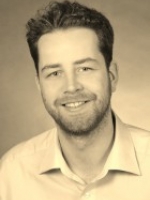Philipp Kehrein

As an environmental management and environmental science student I discovered early, that the complexity of the water cycle fascinates me. In addition, I developed a great interest in circular economy related topics and started to explore resource recovery for value creation from organic waste streams. Doing research on wastewater related concepts that promote the recovery of energy, materials and products is the perfect symbiosis of these two exciting topics.
Urbanization, as a major and continuing megatrend implies that large quantities of wastewater are generated in cities and accumulate a variety of different substances. The PhD project aims for supporting the design and development of more sustainable wastewater management strategies that are based on a resource recovery perspective. Conventional and innovative wastewater treatment technologies can promote value creation and contribute to sustainable development if wastewater derived products can become re-integrated into existing material and energy flows. In this context, a strategical framework that provides guidance to exploit the resource recovery potential of existing urban wastewater systems is needed. In addition, bottlenecks for the implementation of innovative wastewater resource recovery pathways shall be revealed like e.g. economic constraints or social acceptance barriers for recoverable products.
Status PhD
- PhD successfully defended
- Supervisors / promoters: Promotors: Prof. Dr. Patricia Osseweijer & Prof. Dr. Ir. Jo Dewulf, Copromotor: Dr. Ir. John Posada
- Final title of the PhD thesis: “Towards water resource factories: Designing and planning sustainable circular wastewater treatment processes”.
- Place and date of PhD defense : Delft University of Technology (TU Delft), Delft, the Netherlands / 17th November, 2021.
- PhD degree awarding institutions: Delft University of Technology, the Netherlands; and Ghent University, Belgium.
Publications arising from the PhD
- Kehrein P, Jafari M, Slagt M, Cornelissen E, Osseweijer P, van Loosdrecht M, Posada JA. (2021). A techno-economic analysis of membrane-based advanced treatment processes for the reuse of municipal wastewater. Water Reuse. Journal of Water Reuse and Desalination 11: 705–725. (https://doi.org/10.2166/wrd.2021.016).
- Kehrein P, van Loosdrecht M, Osseweijer P, Posada JA. (2020). Exploring resource recovery potentials for the aerobic granular sludge process by mass and energy balances: Energy, biopolymer and phosphorous recovery from municipal wastewater. Environmental Science: Water Research & Technology, 6:2164-2179. (https://doi.org/10.1039/d0ew00310g)
- Kehrein P, van Loosdrecht M, Osseweijer P, Garfí M, Posada JA, Dewulf Jo. (2020). The SPPD-WRF Framework: A Novel and Holistic Methodology for Strategical Planning and Process Design of Water Resource Factories. Sustainability, 12:4168. (https://doi.org/10.3390/su12104168)
- Kehrein P, van Loosdrecht M, Osseweijer P, Garfí M, Dewulf Jo, Posada JA. (2020). A critical review of resource recovery from municipal wastewater treatment plants – market supply potentials, technologies and bottlenecks. Environmental Science: Water Research & Technology, 6:877-910 (https://doi.org/10.1039/D0EW00310G)
Link to PhD thesis
https://pure.tudelft.nl/ws/portalfiles/portal/101298146/Dissertation_Philipp_Kehrein_003_.pdf
Short abstract/summary
In the current linear take-make-waste pattern the production of goods starts with raw material extraction followed by industrial conversion into products that are used and finally wasted. This linear system accelerates resource depletion and therefore hinders the development of sustainable societies. This is also valid for the use of water and the implied production of wastewater. The ongoing rapid urbanisation in many areas of the world including Europe has led to high increases in wastewater since the beginning of the 20th century. The initial goal of wastewater treatment was to protect surface water users from health risks due to pollution. Then, during the last decades the protection of the environment itself from nutrient pollution has been enforced by implementing stricter legal wastewater treatment plant (WWTP) effluent standards. The conventional activated sludge process is the currently most widely applied wastewater treatment technology in these plants. It succeeds in reaching legal standards for chemical oxygen demand (COD), nitrogen, and phosphorous effluent concentrations but in its currently applied form, it is considered unsustainable due to its low resource recovery potential and costeffectiveness on the one hand and its high energy demand and environmental footprint on the other. To adapt wastewater treatment practices to urgent requirements for more sustainable urban environments, a paradigm shift has been proposed by academia since over a decade. It recognises the potential of wastewater as a resource and demands to perceive it as such instead of a waste stream.
Numerous technologies have been developed since then to recover water, energy, fertilizers and other products from municipal wastewater. By reusing resources contained in municipal wastewater, we could tackle water scarcity problems, lower fossil energy consumption and address global nutrient needs. In addition, it should not be forgotten that a variety of other products (e.g. biopolymers) can be recovered from wastewater. Unfortunately the implementation of innovative recovery technologies into treatment processes does not match with their rapid development which leads to an increasing number of readily available technologies that are waiting for implementation. To achieve that, a solid analysis prior to the implementation of recovery technologies into treatment processes is required to understand how to optimally integrate and design processes form a circular economy perspective. The focus of this dissertation is to solve uncertainties about which of the innovative technologies are most effective and how to optimally combine them to design and successfully implement water resource factories instead of wastewater treatment plants in the future. A water resource factory is a process that not only treats wastewater in a robust way to meet legal effluent qualities but also recovers various marketable resources, is technically feasible, cost efficient, and shows low environmental impacts. To contribute to this ongoing transition this dissertation investigates not only the technical design space of water resource factories but also the non-technical bottlenecks that may hinder their successful implementation. Consequently, a holistic and multidisciplinary research approach is followed to consider the various bottlenecks to be solved to innovate wastewater treatment and integrate it into a circular economy. The dissertation gradually evolves from understanding the potential of innovative resource recovery technologies towards exploring process design and system integration possibilities and finally providing guidance for decision makers to holistically plan and practically implement water resource factories.

